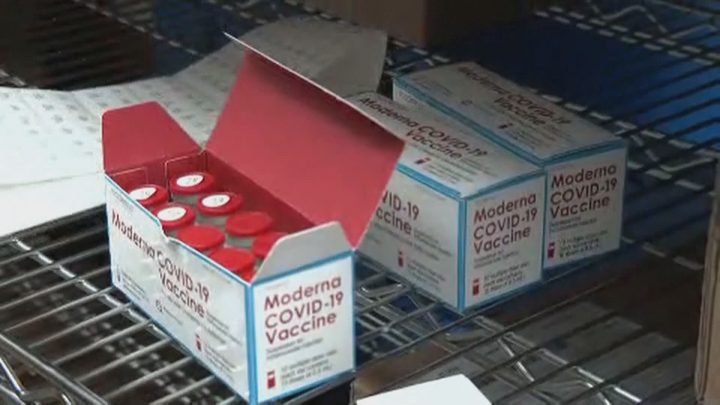The Manitoba government says it expects to have thousands of doses of the Moderna COVID-19 vaccine routed to Manitoba First Nations this week.

Manitoba’s acting deputy chief provincial public health officer, Dr. Jazz Atwal, said Thursday the province has received its first shipment of the Moderna vaccine — 7,300 shots — and efforts are now in place to get 5,300 doses distributed to northern and remote communities across the province
He said the province is working with First Nations health experts to determine exactly how the first doses will be delivered.
“There are physician leaders on the First Nations side and that plan is being developed at this point,” he said during a media availability Thursday.
“They’re going to decide how to use those doses, on what population, and how they want to roll that out.”
In a release the government said provincial health officials have been meeting with experts in First Nations health and leaders from the Manitoba First Nations Pandemic Response Co-ordination Team and the Keewatinohk Inniniw Minoayawin Inc. since last week to work on plans for vaccine distribution.

The province says it has committed to arrange for planes to be available to ship the vaccine to priority locations chosen by the planning group.
“It is important that Indigenous voices are heard,” said Dr. Barry Lavallee, one of several First Nations health experts identified to help in planning by the three grand chiefs of the Assembly of Manitoba Chiefs), Manitoba Keewatinowi Okimakanak, and the Southern Chiefs’ Organization.
“As Indigenous health experts, we are at this table in support of First Nations people. We are needed at the table. This is very historic work.”
The province says it is also working to establish a vaccination site in Thompson to serve northern and remote communities, including First Nations as more vaccine deliveries come to the province.
Doses of another vaccine made by Pfizer-BioNTech have already been going to Manitoba health-care workers since first shipments of it arrived earlier this month.
Unlike the Pfizer-BioNTech vaccine, which must be kept at -70 C and therefore must be kept in specific freezers, the Moderna vaccine can be stored in regular freezers. Health officials say that makes it better suited for delivery to northern and remote communities.

As of Thursday the province said it has administered roughly 3,400 doses of the Pfizer vaccine and health officials have said they plan to have another 40,000 vaccinations completed across Manitoba by the end of January.
Atwal said the province initially plans to hold onto the remaining 2,000 doses from the first Moderna shipment, in part to make sure there’s shots left to do a second round of shots should there be a problem with the vaccine’s supply chain.
Both the Pfizer and Moderna vaccine require two shots given roughly three weeks apart.
Manitoba’s vaccine supply is based on a federal per capita allocation and the province says the federal government will provide 228,000 doses of the Pfizer and Moderna vaccines to the province by the end of March.
Questions about COVID-19? Here are some things you need to know:
Symptoms can include fever, cough and difficulty breathing — very similar to a cold or flu. Some people can develop a more severe illness. People most at risk of this include older adults and people with severe chronic medical conditions like heart, lung or kidney disease. If you develop symptoms, contact public health authorities.
To prevent the virus from spreading, experts recommend frequent handwashing and coughing into your sleeve. They also recommend minimizing contact with others, staying home as much as possible and maintaining a distance of two metres from other people if you go out. In situations where you can’t keep a safe distance from others, public health officials recommend the use of a non-medical face mask or covering to prevent spreading the respiratory droplets that can carry the virus. In some provinces and municipalities across the country, masks or face coverings are now mandatory in indoor public spaces.
For full COVID-19 coverage from Global News, click here.





Comments